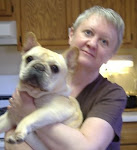Gastroesophageal reflux (GER) is a condition characterized by the abnormal movement of stomach contents (with acid) up into the esophagus, causing heartburn, chest pain, regurgitation, coughing, sore throat and/or swallowing problems.
The adjustable gastric band can decrease reflux by acting as a barrier to the stomach contents. When reflux occurs after AGB surgery, it needs prompt attention because it is often caused by a too-tight band and can be associated with band slippage, dilation of the esophagus and/or stomach, or a hiatal hernia (one that was unrecognized at the time of band surgery, or that developed post-op). Hiatal hernias (especially if larger than 1-1/2") increase the risk of band slippage, but can usually be repaired with laparascopic surgery.
The standard advice for reflux is to avoid eating before bedtime, sleep with the head of the bed raised, avoid caffeine, chocolate, acidic fruit, spicy or fatty foods, and take acid-blocking medication. These steps may alleviate the symptoms of reflux but do not cure it. It's not going to get better by itself and the longer you ignore it, the worse the damage. Reflux can cause esophagitis (inflammation of the esophagus), bleeding, ulcers, and Barrett's esophagus (which can lead to esophageal cancer), to say nothing of the threat to your band.
If you experience reflux more than twice a week, do not just live with it. Call your surgeon. You may just need a small unfill, or you may need and upper GI x-ray or endoscopy.
Friday, June 26, 2009
Subscribe to:
Post Comments (Atom)







No comments:
Post a Comment